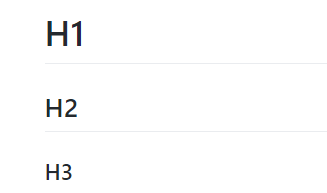Resources
Here are some resources to get you started with the course.
Just like learning a new language, there is no way to become fluent in a semester or a year. You can, however, become conversant enough to start traveling extensively in this new world of social network analysis. Much of it has been built in virtual settings, and you will be amazed at how many free resources are available when you know how and where to look.
R Cheat Sheets
Cheat sheets are parsimonious and stylized notes that help organize functions and syntax so it is easier to learn and find. R Studio has an extensive list of R Cheat Sheets that you might find helpful.
R Studio Resources for Beginners
R Exercises
Short exercises on basic R skills [ link ] Tutorials from Rexercises [ link ]
Data-Driven Documents
For the purpose of transparency and reproducibility, as well as simple convenience, there is high demand for documents that combine typical elements of publications and reports such as text, tables, graphs and images, and the code that was used to create the analysis presented in the text. These efforts have largely converged on Markdown as a simple publishing language, and derivations like R Markdown to incorporate output from models into documents.
Markdown is a simple set of rules used to format text and images. Formatting it accomplished by adding tags to text.
# H1
## H2
### H3

The basics are very easy to master by referencing a basic Cheat Sheet.
But don’t let the simplicity fool you. Markdown documents are extremely versatile and powerful. Using the same text and code in a document, minor changes can be made to select a variety of document outputs that best meet the needs of the client or team. For example, check out the diversity of formats available in the R Markdown Gallery.
R Studio makes it easy to create R Markdown documents, and you can select the format by changing the output type. Perhaps you have a regular report created as an HTML page:
---
output: html_document
---
Then add a few page dividers, and your analysis will now be organized something like this StoryBoard.
Markdown is used on GitHub, Stack Overflow, and in R Markdown documents. Familiarity with the basics offers a lot of power in controlling how your analysis is presented to your audience.
Collaboration Tools
Working in groups is hard. Most work is done in groups. As a result, project management is a non-trivial task that should not be approached in an ad-hoc fashion. The field of data science has inherited many great collaboration tools that were developed to manage large teams of software engineers, but are being used for many other creative purposes:
Install GitHub in R Studio
This course will introduce students to GitHub, one of the most popular collaboration and publishing platforms used by the open source community. GitHub is integrated into R Studio for easy deployment.
Here are some resources for configuring GitHub to work with R Studio:
Installing R
R is a programming language that was designed specifically for data analysis. Along with Python, it is the most popular tool used by data scientists, data journalists, and quantitative social scientists.
R in 60 Seconds:
See some tips on installing R and R Studio.
Installing Packages in R
A large part of R’s popularity is it’s enormous library of custom programs, called packages. If you know the package name, they are easy to install and load.
install.packages( "sna" )
library( sna )
Note that quotation marks are mandatory during the install phase, but optional during the load phase. There are good reasons for this that will not be discussed here. Be sure to remember the quotes or you will get an error.
With 13,000 available packages, it can be hard to find the ones that are most useful for your task at hand. The R Team has tried to make it a little easier by organizing packages into a Task Views library.
